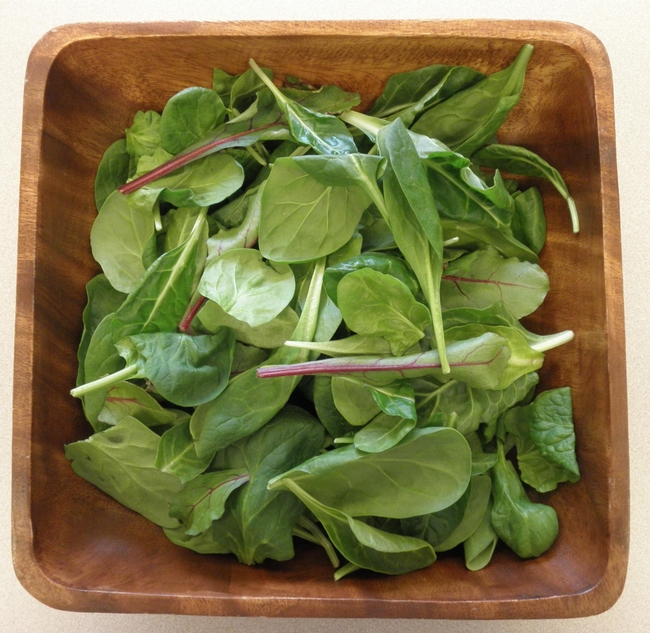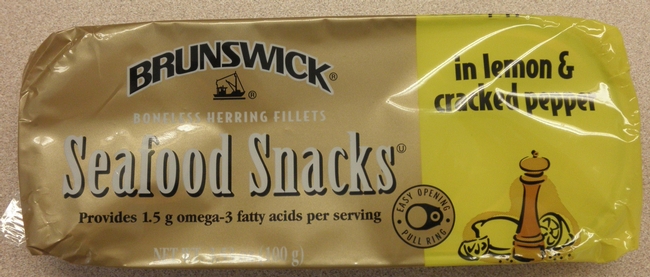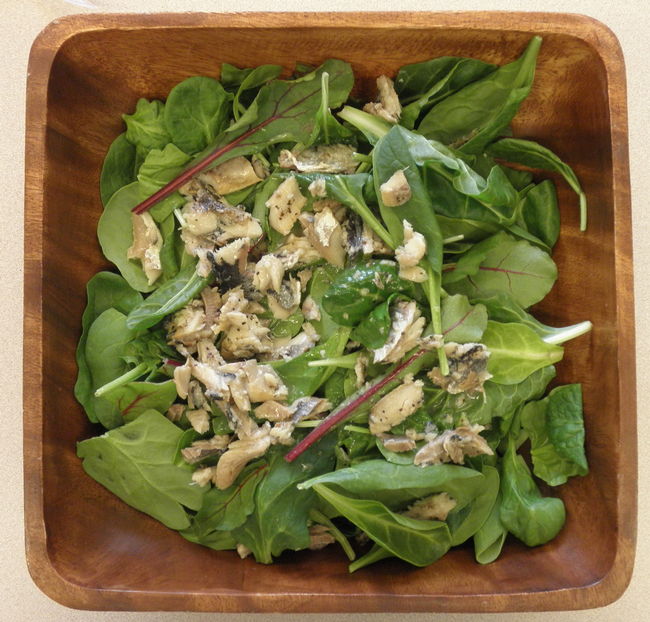A big bowl of dark leafy greens and ...
We all know that eating dark leafy greens is good for us, right? So that’s why for lunch lately I’ve been on a health kick to eat a big bowl of dark leafy greens topped with a lean protein source. I have, however, been subject to some good-natured ribbing around my office regarding my lunch selections. So I decided to research my lunch ingredients, and why I, as well as my inquisitive co-workers, already know it’s something of a power lunch, in the most nutritious of ways. First, the base of my lunch: a mix dark leafy greens (today it’s spinach, baby bok choy, and red and green chard).
The USDA describes the following general health benefits by eating your vegetables:
- Eating a diet rich in vegetables and fruits as part of an overall healthy diet may reduce risk for heart disease, including heart attack and stroke.
- Eating a diet rich in some vegetables and fruits as part of an overall healthy diet may protect against certain types of cancers.
- Diets rich in foods containing fiber, such as some vegetables and fruits, may reduce the risk of heart disease, obesity, and type 2 diabetes.
- Eating vegetables and fruits rich in potassium as part of an overall healthy diet may lower blood pressure, and may also reduce the risk of developing kidney stones and help to decrease bone loss.
- Eating foods such as vegetables that are lower in calories per cup instead of some other higher-calorie food may be useful in helping to lower calorie intake.
And specifically, dark leafy greens are nutrition-dense, with loads of vitamins (Vitamin K, C, E and B), minerals (iron, potassium, magnesium and calcium) and fiber. Additionally they contain beta-carotene, lutein and zeaxanthin, which aide in disease prevention.
Second, the toppings. I’ve left this part for the end, because those co-workers of mine thought you might not still be reading if I let you in on my super power lunch protein choice, so here it is: a can of herring.
Surprised? Yep, herring is really good (I already like herring, but I love the lemon pepper variety), and there’s no need to add dressing, just dump the whole can on your salad! Sardines, smoked oysters and tuna — all on the “Good alternative” or “Best Choice” list on the Monterey Bay Aquarium Seafood Watch — are also delicious. They’re also very convenient and relatively inexpensive, especially if you stock up when they’re on sale. Fish is a super-food of protein choices, evidenced by the USDA Dietary Guidelines for Americans 2010:
“Mean intake of seafood in the United States is approximately 3 1/2 ounces per week, and increased intake is recommended. Seafood contributes a range of nutrients, notably the omega-3 fatty acids, eicosapentaenoic acid (EPA) and docosahexaenoic acid (DHA). Moderate evidence shows that consumption of about 8 ounces per week of a variety of seafood, which provide an average consumption of 250 mg per day of EPA and DHA, is associated with reduced cardiac deaths among individuals with and without pre-existing cardiovascular disease.”
A recent USDA paper says fish consumption is especially beneficial to pregnant and lactating women: “increased maternal dietary intake of long chain omega-3 fatty acids, in particular DHA from at least two servings of seafood per week during pregnancy and lactation is associated with increased DHA levels in breast milk and improved infant health outcomes, such as visual acuity and cognitive development.” (See complete February 2012 article.) And, just as I was getting ready to submit my blog, an article entitled “Brainpower Tied to Omega-3 Levels” appeared in the NY Times. How’s that for timing!
All this is not to say that chicken breast, tofu or beans are to scoff at, but do you get your USDA-recommended two servings of fish a week? What about that recommended two servings of chicken breast? Or tofu? Even beans don’t get a mention of how many times a week you should eat them. And for this I get razzed by my co-workers. Hmmph—bon appetite!



